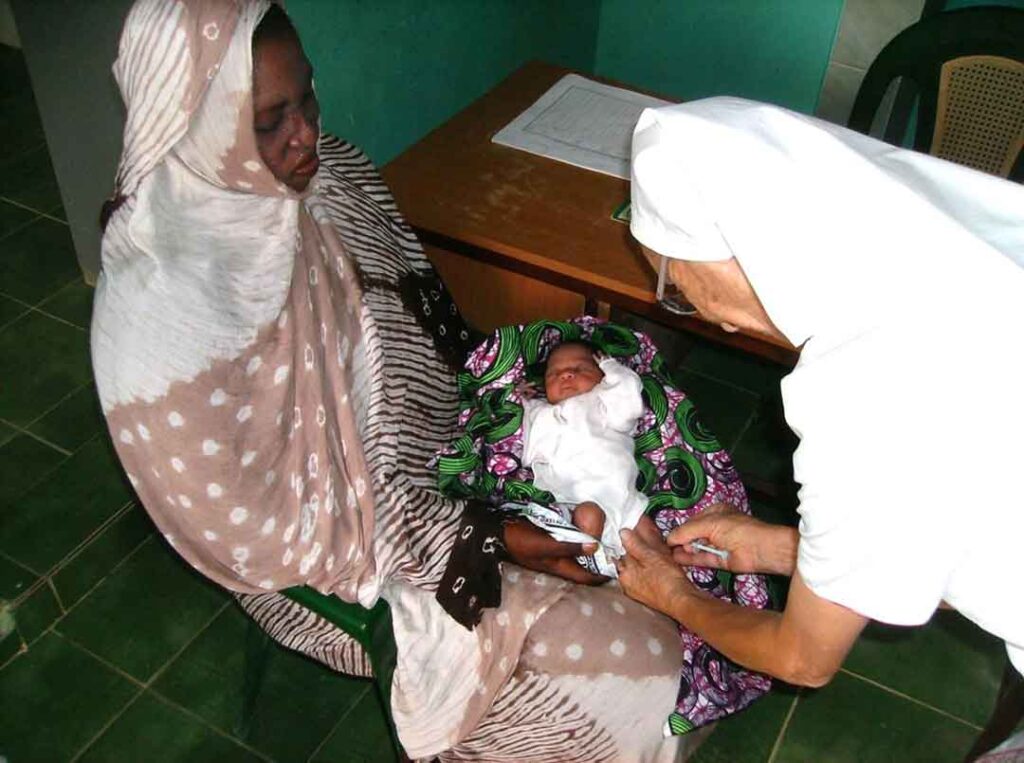Bishop reports on the work of the small Christian minority.
“Only God knows how many Catholics there are in Mauritania”, says Bishop Martin Happe, from the capital Nouakchott, with a smile. Born in Germany, he belongs to the Missionaries of Africa (White Fathers). In a conversation with the international pontifical foundation Aid to the Church in Need (ACN), he looks back over 50 years of involvement with Africa – first in Mali and then, for the last 28 years, as the only bishop in the west African state of Mauritania, whose 4.5 million inhabitants are almost 100% Muslim: “They are automatically Muslim, just like in my childhood you were automatically Christian in my home country.”

Christians who are originally from other countries can, according to the bishop, live their faith freely. Unlike other parts of Africa, they are not persecuted. Admittedly, he says, it is legally forbidden in Mauritania to convert from Islam to Christianity, but despite this restriction on religious freedom, the bishop warns against false hopes. “Even if the ban were removed, there would be no big wave of conversions”.
“We want to show that God loves all people”
The number of Catholic Christians who go to Mass or have their children baptised is “not more than in a parish in western Europe”, and the members of the community come from up to 50 nations. Mauritania, which is about twice the size of Germany, is served by about 12 priests, three religious and around 30 nuns, according to the bishop. Despite this small number, the Catholic Church in Mauritania has big aspirations, he emphasises: “As Catholics, we are there for all Mauritanians. Through our way of living together and our activities we want to show that God loves all people”.

There are lots of opportunities for this in Mauritania: many refugees come into the country from neighbouring states. That brings social tensions, especially when refugees belong to opposing ethnic groups. An example of a small success story, says Bishop Happe, is that people from different sides of the civil war in the Ivory Coast have joined together in a church choir: “I said to them: ‘Do something together!’ And the choir has been there for ten years now”.
Commitment to the weakest
One major social challenge is the constant growth of cities in Mauritania. Previously most inhabitants lived from livestock rearing. “Since the 1970s, however, the periods of drought are constantly increasing, leading more and more people to stream to the cities. Many people there lived in misery. Mothers were unable to care for their children anymore. The Church has become active in this field, which benefits the whole of society. Nuns have set up little stations on the edges of the city in which they provide milk products and offer hygiene training for mothers.”
A big field of the Church’s activity is also the care of children with disabilities, who are often hidden by their families, and therefore given over to neglect. Bishop Happe is proud of the fact that it has been possible to build a nurture centre for children with disabilities: “Little miracles take place there. Children who were unable to move can run again because they have been nurtured properly”.
“Without ACN things would not work”
To be able to continue this mission in Mauritania, the diocese is dependent on the generosity of the global Church, stresses Happe: “The nuns need support to be able to do their work. We need vehicles to get to people, because our country is sparsely populated.”

Besides material help, prayer is also important: “I value ACN because I know that we get prayed for a lot here.” The bishop is grateful to all donors: “It is important to have ACN by our side. Without it, things would not work.”
